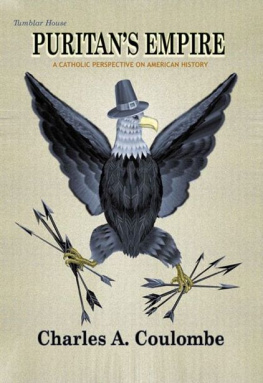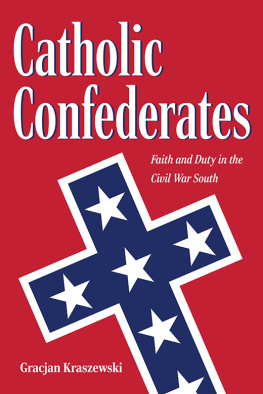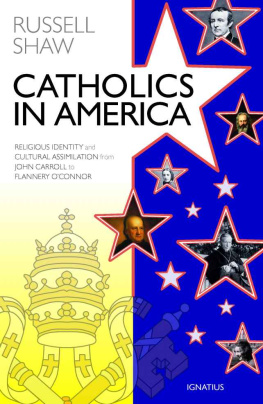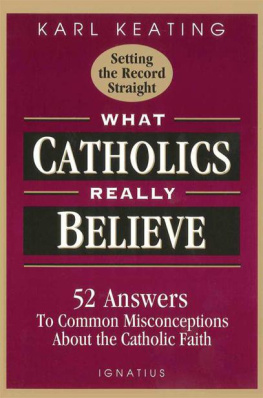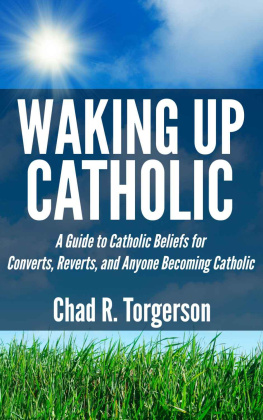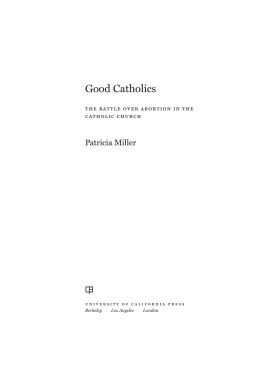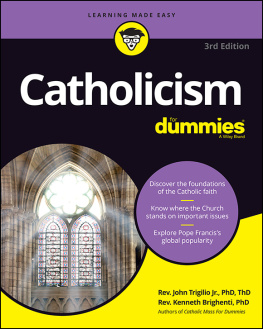Charles A. Coulombe was born in New York on 8 November, 1960. At anearly age, his parents took him to Hollywood, California, where they lived in anapartment building owned by famed television psychic, Criswell. Coulombe haslectured on a wide variety of historical, religious, and political topics onthree continents, and did commentary for ABC News on the death of John Paul II and the election andinstallation of his successor. He is the author of numerous articles in manyjournals, and of nine books, most recently, The Popes Legion, on the 19thcentury volunteers for the Papal army, from Palgrave Macmillan. PuritansEmpire represents the culmination of over 30 years research and thought onthe real meaning of American history today.
Foreword
By
GaryPotter
Those who do not remember the past, it issaid, are doomed to repeat it. The saying, usually taken as an encouragement tolearning about history, in fact suggests that the past was never as good a timeas the present, that everything between then and now would be a record ofunalloyed progress except for the periodic failure to remember how bad the pastwas. This notion, far from turning anyone toward the study of history, tends tokeep most persons fixed on the present, on now. In the present is not simplywhere they live and the time on which they will keep their minds focused, theyend by believing that life could not have been better or happier thantodayunless, perhaps, it might be in the future.
Writing early in the 20thcentury, the great G.K. Chesterton commented on how uncomfortable it actuallyis to try to live exclusively in the present because the present, the moment,is such a narrow amount of time. Trying to live in it, he said, is like sittingon a pin. Doubtless that is why some number wind up dreaming of life in thefuture. Of course the future is totally unlivable since the moment we arrivethere it becomes the present. Still, there are thoseespecially persons ofscientific or technological turn of mindwho persist in this dream. It is whatspace exploration is about. The scientists and technologists imagine thathaving wrecked this world, they finally will be able to build a perfect one inouter space.
Remaining Christians, as witness G.K.Chestertons comment, ought not to be fixed on the present, much less obsessedwith the future. Living life as it is, enjoying it, real life, even lifeeverlasting, is what they are supposed to be about. This is why, if they areserious in their Christianity, they will instinctively root themselves in thepast. They will understand, if only instinctively, that there is where lifeexists most expansively, most abundantly. This is why tradition is so importantto them, or should be. It is the past being lived. Of course we must adhere totradition for it to be lived.
It is a parenthetical thought, but adheringto tradition, making the past live, if many more did it than do, would havewonderful political results. That is, the history of the past two centuries,ever since liberalism exploded politically at the end of the 18thcentury with the Revolution that began in France in 1789 and is still unfoldingall over the world, ought to have taught us that the role of political powershould not be to build paradise on Earth, to try to make the world perfect.Rather, those who wield power should be satisfied with preventing the creationof Hell on Earth. Adherence to tradition in religion and the culturaltraditions that flow from that, would keep political leaders on that path.This, by itself, is a good reason to protect and cherish tradition.
In any event, if the past is as vital as itis for Christian living, persons who profess Christ as their Savior ought towant to learn about it, and where may we do that? Where else but in that recordof it known as history? Knowing this ought to make the study of history asexciting for the Christian as it is necessary. We study it when we read itthoughtfully, understanding that in the thought we are giving to it, what weare doing is bringing the past to life.
Doing that, it needs to be clear, is notthe same thing as living in the past. It is not a matter of some poor guyentering middle age who keeps rerunning in his head the Friday night he scoredthe winning touchdown for his high school football team or of someone turning40, not necessarily a woman, who cannot accept it that the face looking backfrom the mirror is not that of a 20-year-old. Nor are we speaking here of thenotionwith some it verges on certaintythat almost any time or era of the pastwould in every way have been a better one in which to live.
The trouble with this fantasy, withbelieving that another time was so much better you wish you had lived duringit, is that it ignores that human nature does not change from era to era.
Among remaining Christians are misguidedones who fanticize living during the time when Our Lord walked on Earth. Onehas heard them say, How glorious it would have been to be alive at the sametime as Our Lord, to see Him, to hear Him speak, perhaps to draw close enoughto touch the hem of His garment. This sentiment ignores it that most who didsee and hear Him did not find it glorious. In fact, theythe majoritywereperfectly ready to clamor for His crucifixion when given the choice between Hisand anothers. It is why since then, as Bishop Bossuet once wrote, the Churchhas known that the rule of the majority can lead to any crime.
How can anyone be absolutely certain hewould not have been among the majoritythe anti-Christ majorityon the firstGood Friday? He cannot be, not if he is honest enough to admit, if only tohimself, how difficult it can be, how often he fails at being, merely good, letalone virtuous.
Yes, any one of us may like to think thatstanding there in Pilates courtyard we alone would have cried Give us Jesusinstead of Give us Barabas, forgetting that even Peter denied Him, forgettingthat almost any day of our life we are liable to prefer something or someone(our own Barabas) to Him.
In sum, living in the past may be somethingwe fanticize, and circumstances theneducation, social position, our state inlifecould have made somewhat different persons of us, but as men and women, inour humanity, we would be as we are, fallen in our nature.
Charles Coulombe, the author of Puritans Empire, understands all this.His understanding is reflected in the pages of his book. This is not to say hisbook is in any way one of philosophy or religion. It is history pure andsimple, but written from a definite point of viewthat of the believingCatholic who adheres to tradition. Moreover, the history he recounts is of theachievements of men (and women) inspired in their doings by what they believedas Catholics.
The achievements being with the arrival inNorth America of the Catholic Spanish and French who were the first Europeansto reach the continent in appreciable numbers. They continue with the successfulefforts of these Catholics, including the evangelization of native peoples, tosettle and civilize the New Worldefforts sosuccessful that we may speak of them as producing a Catholic America. That isinsofar as for more than a century there was no Christian presence in what wenow know as the United States except the Catholic one.
We then see how that presence began to bediluted by the arrival on our shores of others, notably English-speakingPuritans. After thatand radically abbreviating here the far-ranging anddetailed history Coulombe recountswe see how, through a series of historicalaccidents, the newcomers influence and power became dominant, eventuallyresulting in what we have today: a Puritans empire. Along the way, by means ofthat far-ranging and detailed history, we are able to observe the constantinterplay at home and in the nations foreign affairs, in peace and at war,between the ideas, beliefs and standards of Americas original Catholicism andall that has replaced them.

